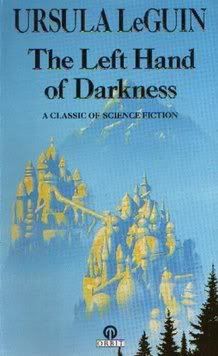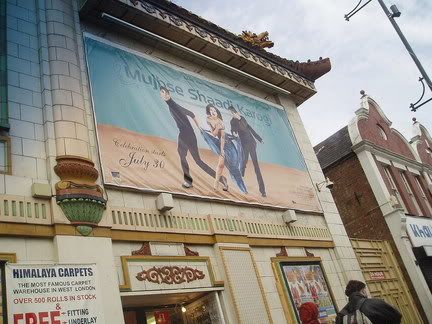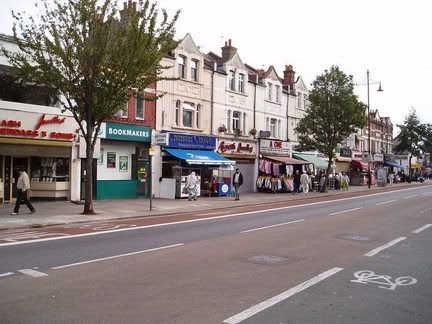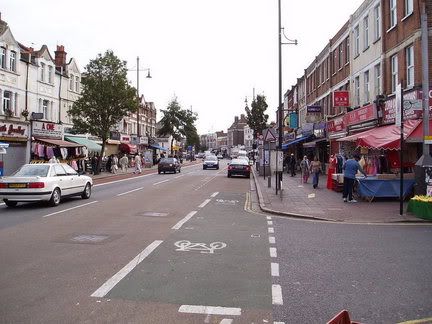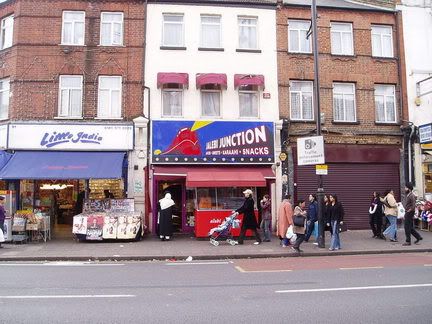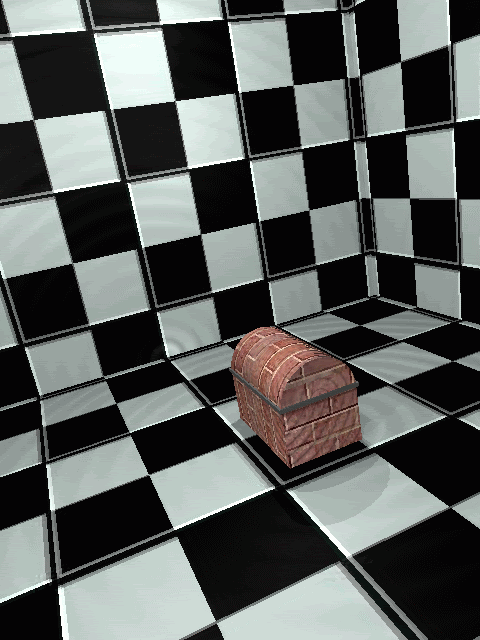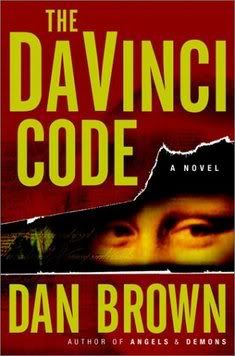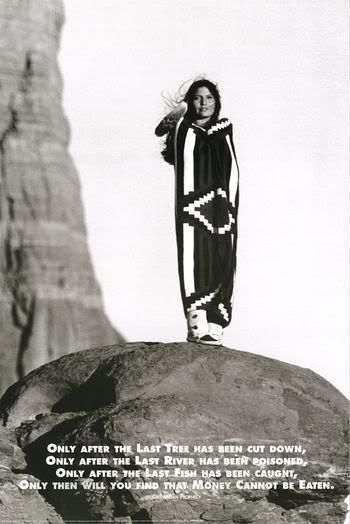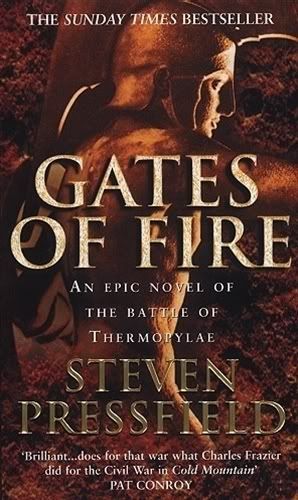Since moving to Canada from the UK, one of the more noticeable differences I have found amongst the desi community here in Canada is a wider acceptance to anglicize south asian names. I find it curiously interesting to meet non-Christian desis (ie. Sikh/Hindu/Muslim) who have white sounding nicknames, which is perhaps either due to pronounciation difficulties by white folk or because they want to be assimilated asap. I look around and every other brown guy (esp realtors) is a Ricky/Bobby/Gary or Dave. Girls have punjabi sounding names like Natasha, Annabelle and Mary-Lou. In this brave new world of "integration", Mohammed has become Mickey and Arjun has become Andrew.
I'm not seeking to bash any desi with a white name - far from it - we've all got to survive one way or another, but I find this an interesting sociological phenomenon. Anyway, I found this article on the web (from Little India) which explored this theme in more detail. Enjoy. *****************************************
The head of the Asian American Hotel Owners Association a few years ago was Mukesh “Mike” Patel. He is not alone. Sometimes I feel like introducing myself as “Victor” instead of as “V as in Very, I as in Insulted,” and so on (you can imagine the problems I run into with the V, “did you say W,” no “V,” yes “W,” werry, werry annoying). It can take an age to get through my name and then, often, the person on the phone or in front of me seems to have a hard time getting much else of what I say. The fact of foreignness makes me suddenly undecipherable.
“Can you repeat that?” “Whaaat?” Those who work in small business, mainly retail, cannot afford to bear the everyday trauma of fighting these small acts of racist parochialism. Why should the migrant bear the bile of each interaction when the Anglo can just walk away, confirmed in his or her mind that these immigrants are paranoid and a bit unsteady, but hard-working workers nonetheless? No wonder we have “Mike” Patel or else Rajendran “Roger” Rajan or Fazrul “Freddy” Rahman.
Among many desis this is not new. Names like Sweety and Tiny, Tinku and Pinku, fill-up the address books of middle-class India. But these are names of love and not of strategic assimilation in a racist land. Dimple and Simple come from the bosom of a family’s love, and not from the small decisions made by a migrant about how best to survive the indignity of “can you repeat that.” The names of one’s childhood become the name of the beloved home, while these new names in quotes are the name of the hostile market.
Women tend not to anglicize their names (how often have you heard of Sushmita “Suzy” Sen or Ayesha “Abby” Bano?). Manavi founder Shamita Das Dasgupta and her doctor daughter Sayantani argue that desi men experience racism as a form of emasculation, that the pressures of white supremacy disturb our manliness. Even if this is partly the case, one could accept that the turn to anglicize names among men may be an attempt to say, “I am a Man” and not be treated as an inferior “Boy.” To have one’s name mocked, to be seen as the standing-joke, the Peter-Sellers-Birdy-Num-Num-Apu of the lotIthis is the sort of indignity that prods at the whiskers of a desi male.
White supremacy tends to see desi women, indeed most women of color, as thoroughly sexual: either as an exotic cultural icon, or else as the drudge reproducer of more and more dusky workers. For this reason, perhaps, desi women do not always experience the immense pressure to change their names, indeed they may even be graced with a comment about the beauty of their names.
Pradip “Peter” Kothari is the president of the Indian Business Association in Middlesex County, New Jersey. In 1990 he says that only five or ten Indian businesses catered to the almost 8,000 desis in Middlesex. A decade later, the county, whose main town is Iselin, houses almost 50,000 desis and boasts over 300 desi stores, from the grocery store to the video store, to the sari plaza to the many different kinds of restaurants. The headquarters of this desi bonanza is the Mahatma Gandhi Plaza, and you know it’s getting busy, says Anita Kaur, when “you can’t find parking.”
“Peter” must go by his new name when he tends to his business associates outside the ethnic world of Mahatma Gandhi Plaza, for he would hardly need to spell Pradip in this haven for ethnic business. When he goes to the banks and the insurance offices, when he “networks” with other small businesspeople, he must feel the sting of inferiority when he gets that glazed look in response to the sound of his voice.
America throws out a branding reproach to its new dwellers: assimilate into me, it seems to say. But how do we do that? The workers (who drive taxis, clean homes, and work in retail or industry) exert their labor into the mainstream of U.S. life, and all they get for it are paltry wages. Some desi retail businesses try to break into the mainstream of small business activity, but they must live in two worlds if they intend to survive.
Take the case of travel agents, many of whom try to do all manner of business, but then create an ethnic niche as their anchor: they create special packages to India, both for the desis on the annual pilgrimage and for the tourists eager for instant enlightenment - somewhere between Bharat Darshan and Dharma Darshan. Profits are eked out by this, among other, necessary, if rather pathetic, attempts to bestraddle the desi market and the demands of economic-cultural conformity. And then the rest open unapologetic ethnic shops, to barter ethnicity on the small scale for a measly living.
We might become “Peter” or “Max,” but not only because we are eager to be American. We do it as a strategic way to survive economically in a racist society. “Peter” and “Max” do not offer evidence that desis are zealous about assimilation. What they tell us is that this country is loath to accept us for our cultural resources. The small acts of racism, and the reminder that we are “foreign,” is used by white supremacy to make us accede to lower wages and to lower the prices in our shops - strategic choices to survive in a racist environment. “Peter” is a measure of racism, not of assimilation.
When I, as a desi immigrant, go to a Puerto Rican bodega in Hartford, I often ask people about their lives. “Where are you from,” someone may ask, and I say, “India.” The conversation is sometimes interesting and enriching. But, there are times when an Anglo asks me “where are you from,” and I feel like they are really asking me “when are you going home.”
A Puerto Rican friend, Luis Figueroa, calls me “Victor Perez,” as if to assimilate me into his cultural world. I’ve taken to calling him Luis-mian, just to make sure the transit is both ways. He’s not asking when I go home; he’s welcoming me into another America, one that says home is not where you come from, but what we make of it, drawing from our various pasts. And from our many, strategic uses of culture.


